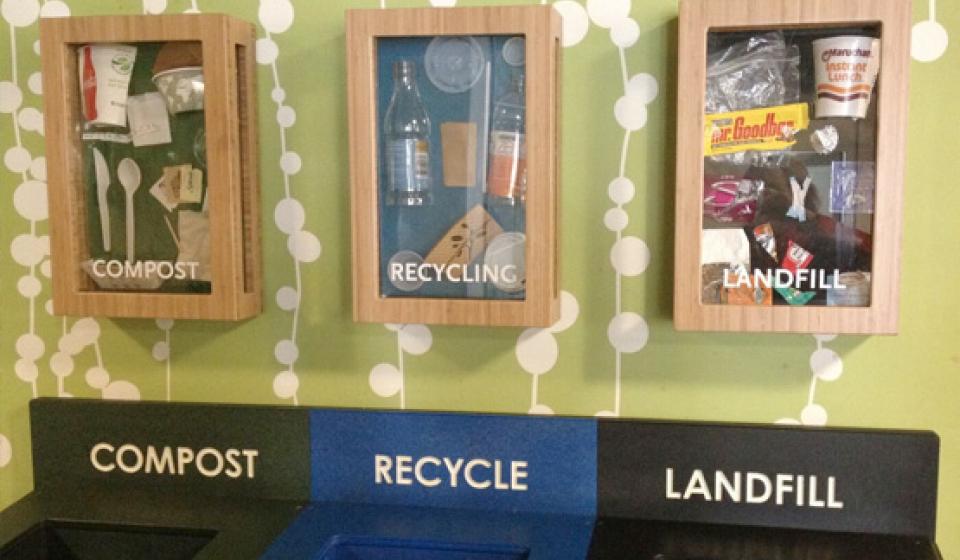Aim for Zero Waste
Adopt a Zero Waste Attitude
As you walk through the USF campus, residence halls, and cafeteria, one thing you are sure to see are the iconic blue and green recycling and compost bins. You might be surprised to learn that over 90% of what ends up in the landfill can be composted or recycled. Recycling and composting can make a difference by reducing our dependence on fossil fuels, eliminating carbon emissions, and transforming food waste into nutrient-rich compost.
USF provides desk-side recycling in all offices and recycling in all residence halls and common building areas (over 200 locations). Composting bins can be found in all dining services locations, all residence halls, restrooms, and select non-residential buildings. In the cafeteria, if you must take out, everything—containers, cups, and utensils—should all be placed into the green compost bin.
The USF Office of Sustainability and SHaRE, in partnership with Goodwill, service donations year-round at USF campus residence halls. Goodwill ReCompute, which is R2 Certified, handles all campus electronic waste recycling.
USF Sustainability Fact
USF increased its waste diversion rate from 62% (2014—2015) to 64% (2015—2016) through recycling and composting.
Our Impact
In 2016, Recyclemania rated USF one of the top 13 colleges for waste reduction out of 209 college and universities across the US and Canada. In the Waste Minimization category (pounds per person), USF improved to 37th (up from 69th in 2015).
In FY2016, USF recovered over 1 million pounds of recyclables and composted over 700,000 pounds of organics, avoiding 2,286 metric tons of carbon dioxide equivalent in landfill emissions. That’s comparable to taking 483 cars off the road.
We have reduced landfill compactor pickups from three times a week to twice a week and increased organics collection from once a week to twice a week. To minimize landfill waste, USF introduced a campus-wide paper towel-composting program.

Call to Action
Reduce
The easiest way to create less waste is to start by reducing it in the first place. Carry your own refillable coffee mug and water bottle and take your own bag to the market.
Reuse
Before you toss something into a black bin, think twice. Ask yourself, “Can this item be reused or donated?”
Recycle
Place newspapers, clean paper, cardboard, magazines, and letters in the blue bin, as well as all metals, bottles, cans, and hard plastics. For more information on what can be recycled, visit Recology SF.
Compost
Educate yourself about composting. Food waste, soiled pizza boxes, coffee cups, dirty napkins, paper towels, and cafeteria dining ware can all be composted. For more details on what can be composted, visit Recology SF.